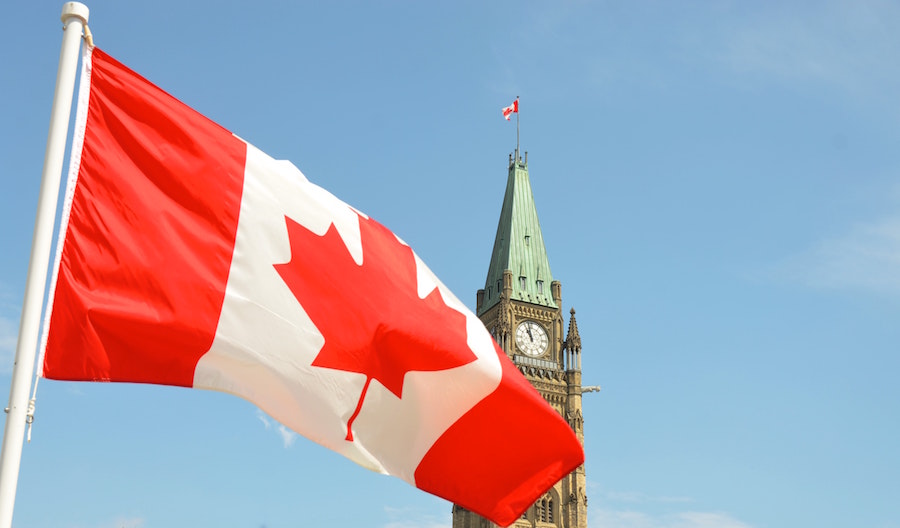Canada Extends Open Work Permit Pilot In Anticipation of Making it Permanent
Spousal Work Permit Pilot to be Made Permanent by IRCC
Canada has extended the open work permit pilot for spouses and common law partners as the government works toward making this program a permanent fixture, according to Immigration, Refugees and Citizenship Canada (IRCC).
The pilot, which was launched in December 2014, allows foreign spouses and common-law partners of Canadian citizens and permanent residents to work in Canada while their inland sponsorship application for permanent residence is being processed. It was initially set to expire on July 31 after its most recent extension, however, the government of Canada has decided to extend the pilot until the regulatory changes have been completed to implement it as a permanent policy.
A press release from IRCC stated:
"Support for families is a priority for the Government, and these measures ensure that applicants have the opportunity to work and contribute to the economy. The extension of these measures provides certainty and stability to spouses and common-law partners in Canada who are awaiting their permanent resident status."
The pilot program’s updated web page on the IRCC website also states that family reunification is a “core immigration priority for the Government of Canada.”
It is important to keep in mind that the open work permits are limited those who are living in Canada and have submitted an application under the spouse or common-law partner in Canada class. Applicant’s must also have temporary resident status or be eligible to restore their temporary resident status (as a visitor, student, or worker) and be living at the same address as their sponsor.
Those who have been provided with a work permit under the initial pilot must apply for a work permit extension before their status lapses.
Submitting an Application
If you are submitting a new application for a work permit under this pilot, you can do so at the same time as your application for sponsorship application and permanent residence. Your applications must include all the appropriate fees and be sent together by mail or courier only.
For more information about the Open work permit pilot program, visit the Immigration, Refugees and Citizenship Canada website.
Canada’s Permanent Resident Intake Is Highest Its Been Since Before COVID-19 Pandemic
Canada Welcomes 19,200 Permanent Residents in June
Canada’s immigration levels are officially the highest they’ve been since the COVID-19 pandemic began, as 19,200 new permanent residents were welcomed in the month of June alone.
According to data released by Immigration, Refugees and Citizenship Canada (IRCC), Canada’s June permanent resident (PR) intake has been steadily increasing since early this year. In April, only 4,000 permanent residents were accepted and by May, this number increased to 11,000.
However, it’s important to note that Canada’s permanent resident intake one-year prior was significantly higher, with 34,000 immigrants approved for permanent resident status.
The reason for the dramatic shift is the ongoing travel restrictions in place since March along with other policy changes due to the COVID-19 pandemic.
This includes IRCC application processing being slowed by social distancing measures and permanent residence holders being unable to travel to Canada even if they are permitted to do so. However, just last month Canada began issuing exemptions for certain expired Permanent Resident Visa holders.
Countries With the Highest Number of Permanent Residents
The countries that contributed the most permanent residents in June 2020 are as follows:
- India (6,760)
- China (2,010)
- Philippines (900)
- USA (740)
- Pakistan (595)
- Brazil (560)
- United Kingdom (535)
- Nigeria (530)
- Iran (390)
- South Korea (355)
This remains consistent as per immigration data from the past few years.
What This Means For The Future
If these rising numbers are any indication, Canada’s immigration system may be finally starting to recover from the pandemic, especially as travel restrictions continue to loosen.
Throughout the pandemic, Canada has remained committed to maintaining immigration and has consistently invited successful immigration candidates to apply for permanent residence.
In fact, bi-weekly Express Entry draws have continued taking place over the past several months, with Canada issuing 3,900 or more invitations to apply (ITAs) for permanent residence every two weeks.
Just last week, two Express Entry draws were held, including Federal Skilled Worker Program (FSWP) candidates. FSWP candidates had been previously excluded from Express Entry draws between the months of March and July, as IRCC wanted to prioritize candidates that were more likely to already be in Canada and would not have to travel.
Allowing Express Entry to include FSWP candidates and continuing Provincial Nominee Program (PNP) draws as well are strong indications that Canada is following through on its pre-pandemic immigration promises.
Canada Issues Travel Restriction Exemption For Certain Expired Visa Holders
Those With Expired Permanent Resident Visas May Be Able to Enter Canada Despite Travel Restrictions
Canada is continuing to gradually reduce travel restrictions for immigrants by allowing those with expired permanent resident visas to enter Canada despite the ongoing travel restrictions.
According to CIC News, Immigration, Refugees, and Citizenship Canada has issued new guidelines for holders of expired permanent residence visas seeking entry into Canada. Under these new guidelines, those who are in possession of a Confirmation of Permanent Residence (COPR) and Permanent Resident Visa (PRV) which have expired, will be able to bypass the COVID-19 travel restrictions and gain entry into Canada if they have an acceptable 14-day quarantine plan.
However, it’s important to keep in mind that there are different policies in place depending on whether a permanent resident visa holder is coming to Canada from the U.S. or another country.
For instance, those who are coming from outside of the U.S. must have received their visas on or before March 18 in order to qualify for the new measure. Permanent Resident Visa-holders travelling from the U.S. will qualify regardless of the date that their visa was issued.
Furthermore, permanent resident visa holders looking to come to Canada must intend to stay and become permanent residents. They will not be able to stay temporarily and leave as they please while the travel restrictions are in place.
Travel to Canada must also be for a compelling reason. These include:
- Traveling to re-unite with immediate family members
- Traveling to support Indigenous communities
- Traveling through Canada to the United States for non-optional or non-discretionary purposes
- Any activities that are determined to be non-optional or non-discretionary by the Government of Canada or based on a border officer’s assessment
Additional Guidelines For Permanent Resident Holders
Valid COPR and PRV Holders Traveling From Outside the U.S.
If you have a Confirmation of Permanent Residence and a Permanent Resident Visa that was issued on or before March 18th, and are not traveling from the United States, you:
- Will be exempt from Canadian travel restrictions
- Will be able to travel to Canada for non-discretionary reasons with your expired documents
- Will be required to present an acceptable 14-day quarantine plan upon arrival in Canada
Valid COPR and PRV Holders Traveling from the U.S.
COPR and PRV holders traveling from the U.S. may come to Canada for non-discretionary purposes with the intent to settle and reside in Canada if:
- Their application has been approved
- Their COPR and PRV have been received and are still valid
- They are able to present an acceptable 14-day quarantine plan.
Expired COPR and PRV Holders Traveling From Outside the U.S.
Permanent Residence applicants that are in possession of an expired COPR and PRV that are looking to settle in Canada must contact Immigration, Refugees and Citizenship Canada (IRCC) and provide the expiry date of their COPR along with the non-discretionary reasons for their travel to Canada.
Applicants will then be directed to the appropriate processing network and will be evaluated based on the following criteria:
- They are able to present documents that support their plan to settle in Canada
- They have proof of an acceptable 14-day quarantine plan
- They are able to present a proposed travel itinerary
Expired COPR and PRV Holders Traveling from the U.S.
Individuals traveling from the U.S. with expired COPRs and PRVs can travel to Canada for non-discretionary reasons if they meet the following criteria:
- Their application has been approved
- They have received their COPR and PRV
- They have an acceptable 14-day quarantine plan
Permanent Residence applicants that are in possession of an expired COPR and PRV that are looking to settle in Canada must contact Immigration, Refugees and Citizenship Canada (IRCC) and provide the expiry date of their COPR along with the non-discretionary reasons for their travel to Canada.
As it currently stands, Canada’s COVID-19 travel restrictions will be in place until August 31 but are likely to be extended.
So, until travel restrictions are lifted, permanent resident visa holders that fall under the above groups will be able to travel to Canada for non-discretionary purposes, as long as they meet the criteria to do so.
Canada Considers Lifting Travel Ban For Fall 2020 International Students
Immigration Minister Consults With Provinces About International Student Travel Exemption
As Canada slowly eases up on COVID-19 travel restrictions in place since March, International Students may soon be the next group to be granted an exemption that would allow them to travel to Canada.
According to a letter signed by Immigration Minister Marco Mendicino and Health Minister, Patty Hajdu that was obtained by CIC News, the ministers are looking to work with the provincial and territorial governments along with designated learning institutions (DLIs) on the matter. The goal is to determine whether they can safely welcome international students to enter Canada this fall for the purpose of going to school.
Why The Provinces Are Involved
Despite the fact that the issue of travel restrictions is a federal matter, Mendocino and Hajdu must consult with Canada’s provincial governments before deciding whether to grant international students a travel exemption.
The reason for this is that education falls under provincial and territorial jurisdiction, according to the Canadian Constitution.
This means that Canada does not have a federal education department, requiring the federal government to consult with the provinces and territories when it comes to decision making regarding international students.
In the letter, the ministers wrote that they recognize the importance of having international students studying in Canada, especially when it comes to fostering a strong learning environment, society, and economy. However, they also want to respect the jurisdiction of the provinces and territories when it comes to education, while also ensuring Canada’s coronavirus measures remain in place to help prevent the spread of COVID-19.
For this reason, the ministers explained that federal and provincial governments, along with the DLIs “…must collectively commit to and adopt a coordinated, clear, and well-communicated approach to support the health and safety of students and the Canadian public.”
The federal government will also publish its own public safety recommendations on how Canada can begin welcoming international students again in the near future. These recommendations will include the expectations set for students, governments, and DLIs, such as a 14-day quarantine period.
It’s important to note that this letter does not officially confirm that Canada is going to exempt international students from current travel restrictions by the fall semester. However, it is a good indication that the federal government is moving in this direction.
Canada’s Immigration Ministers Plan For Getting Immigration Back on Track
Immigration Ministers Hope Immigration Will Drive Canada’s COVID-19 Economic Recovery
As Canada slowly begins to reopen and recover from the COVID-19 pandemic, Canada’s immigration ministers are looking towards the future in hopes of getting immigration back on track.
According to CIC News, Canada’s federal and provincial immigration ministers recently held a virtual meeting with the goal of discussing the impact the pandemic has had on immigration and how newcomers can help support Canada’s economic recovery.
By the end of the meeting, the ministers agreed to push forward with a “strong immigration system.”
The hope is that increased immigration post-pandemic will help fill labour shortages and aide in Canada’s economy bounce back from the COVID-19 pandemic.
What Else Was Discussed
Besides discussing the coronavirus impact, the ministers also spoke about mapping out immigration levels and regional economic immigration.
Because, while the COVID-19 travel restrictions are currently blocking most immigration pathways, the ministers’ long-term goal is to increase levels once the border reopens.
This includes the possibility of approving the Federal-Provincial-Territorial Strategic Plan for Immigration 2020-2023. If approved, this plan would allow the ministers to formally outline their immigration priorities for the next three years.
The ministers also agreed to work together on developing a new Municipal Nominee Program that would help attract foreign workers to smaller towns and cities.
International students were also named as a crucial component of driving long-term economic and demographic growth and recovery through immigration.
Even while the travel restrictions have been in place over the past 4 months, Canada has remained committed to maintaining some level of immigration during the pandemic by allowing exemptions to the travel restrictions for:
- Temporary foreign workers
- Family members of permanent residents and citizens
- IEC Visa holders
- Certain refugees
The only condition is that those travelling to Canada must not show symptoms of COVID-19, and must also present a credible quarantine plan and self-isolate for 14 days upon arrival.
Express Entry draws are also continuing to take place, and 29,900 work permits were issued during the month of April alone. This includes new work permits issued to those who are eligible to work in Canada through the Temporary Foreign Worker Program (TFWP) or the International Mobility Program (IMP).
The next ministers’ meeting is expected to take place this fall before Canada’s new immigration targets are announced for 2021 to 2023.





